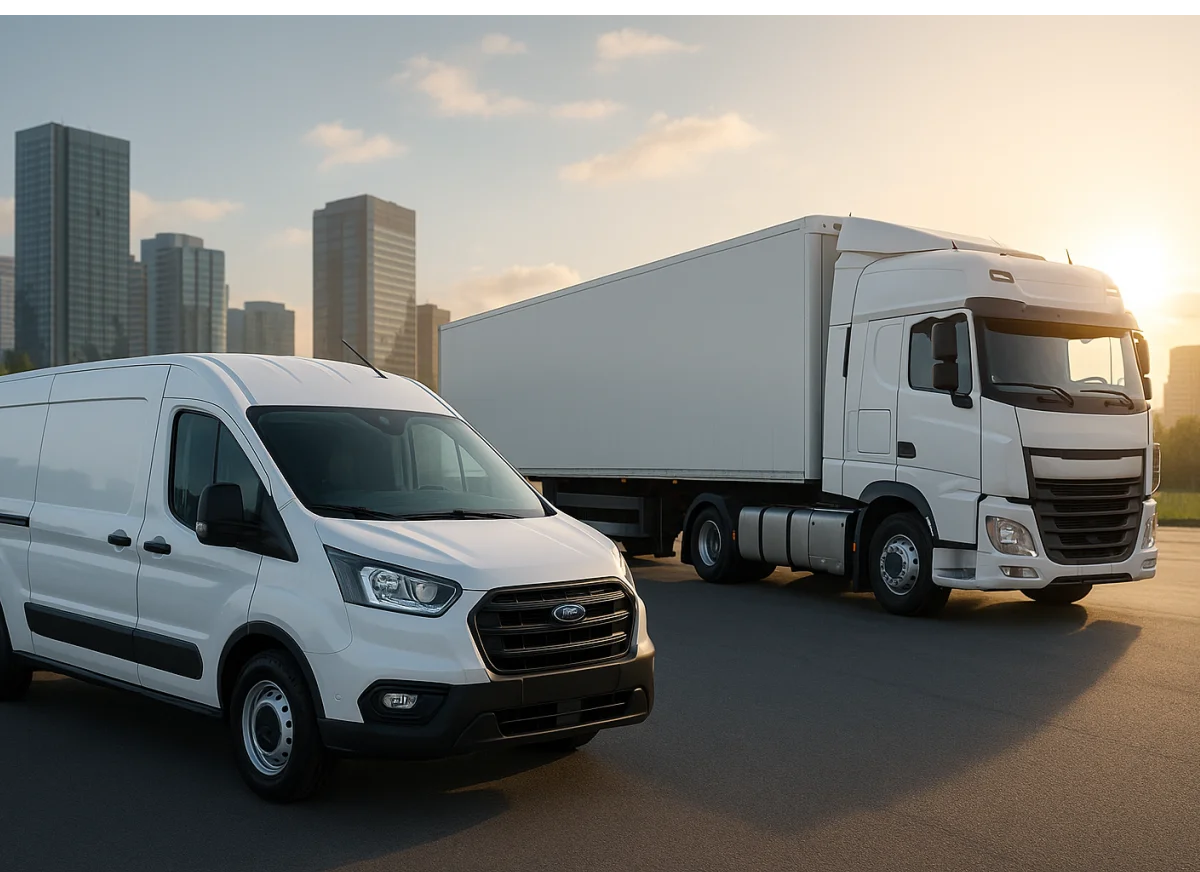Navigating The Commercial Vehicle Market: Why Route Optimisation Is More Critical Than Ever

Fleet operators face a fast-changing landscape shaped by economic uncertainty and increasing environmental pressures.
According to the latest data from the Society of Motor Manufacturers and Traders (SMMT), both van and heavy goods vehicle (HGV) registrations are declining significantly, possible signs of a more cautious investment climate. Yet amid the downturn, one trend is unmistakable: the rapid acceleration toward electric fleets.
Van and HGV Registrations Decline as EV Momentum Grows
In July 2025, new van registrations dropped by 5.1% year-on-year, making July the eighth straight month of decline and the weakest July since 2022. That downturn has prompted a revised SMMT market outlook, anticipating a total fall of around 8.7% or 30,000 units this year, down to 321,000 light commercial vehicles.
Meanwhile, battery-electric van registrations have gained sustained momentum. In July, Battery Electric Vehicle (BEV) vans accounted for 10.3% of the market and year-to-date 8.8% up from just 5.1% a year earlier, as volumes rose 55.5% year-on-year in the first half 2025.
In the first quarter of 2025 new HGV registrations were down 12%, with the largest drop being in articulated vehicles, down 13.9% compared to the same period in 2024. [SMMT data]
Though overall volumes remain weak, these trends show fleets slowly shifting toward zero-emission delivery, aided by ongoing grant support and growing sustainability priorities.
Electrification Introduces New Complexities
Electric vans and trucks offer compelling sustainability and running cost benefits. However, their operational limitations require more strategic planning:
- Limited battery range per charge reduces route flexibility.
- Charging time must be considered and allowed for, especially on longer runs.
- Range variability—influenced by load weight, terrain, traffic, and weather/ambient temperature, just adds further complexity.
Optimising routes around these variables is essential. Transitioning to electric vehicles without advanced route planning risks service delays, wasted mileage, and underused assets.
Need help understanding the move to EV’s?
Then watch our Webinar on Navigating the road to Net Zero with EV’s
Route Optimisation Delivers Operational Advantage
In a market where doing more with less is the new norm, route optimisation software provides the intelligence needed to adapt and thrive. It enables fleet managers to:
- Design routes aligned with vehicle battery ranges and charging schedules.
- Dynamically reroute in real time based on traffic, weather, or last-minute changes.
- Navigate Clean Air Zones (CAZ) and comply with evolving emissions standards.
- Offer customers precise, dependable ETAs and delivery windows.
- Reduce unnecessary miles, failed deliveries, and manual planning time.
For businesses managing electric or mixed fleets, smart routing is a competitive necessity.
Advanced Routing Goes Beyond Mapping
Descartes route planning solutions evaluate far more than just speed or distance. They factor in:
- Vehicle range, charging infrastructure and charge times
- Driver hours, schedules and mandatory breaks
- Order characteristics and volume
- Customer time preferences
- Environmental and route constraints (such as clean air zones or low traffic neighbourhoods)
The result? More efficient routes, greater delivery density, and fewer operational surprises - all while meeting promised time windows.
The Bottom Line for Fleet Managers
With the reduction in vehicle availability, shifting regulations, and increasingly sophisticated customer expectations, a smarter approach to delivery is required. Descartes’ route optimisation software offers the tools to reduce risk, increase efficiency, and streamline the transition to electric vehicles.
Ready to unlock operational efficiency, sustainability, and customer satisfaction in one platform?
Connect with Descartes to explore how our route planning and scheduling technologies are helping fleets across numerous sectors adapt and excel, whether running on diesel, electric, or both.
